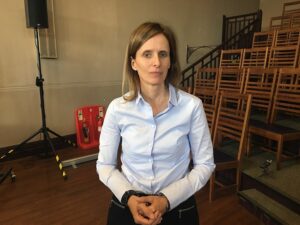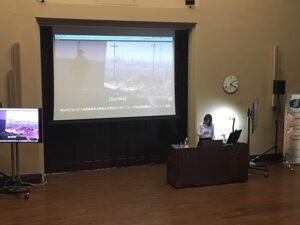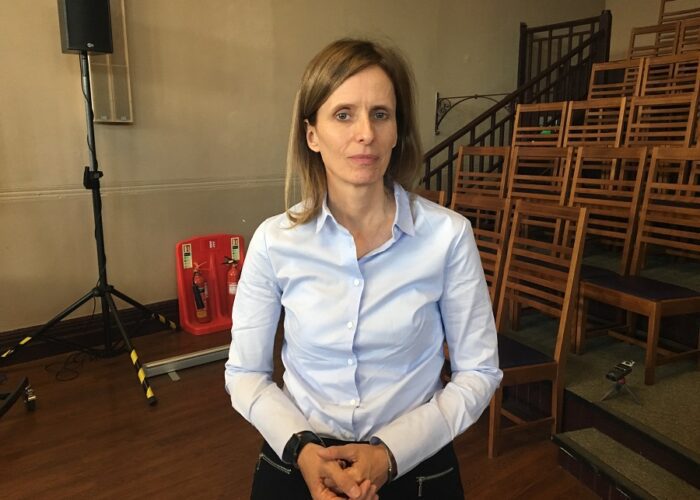
Award-winning BBC war correspondent, Orla Guerin, relived her experiences of life in some of the world’s most dangerous places when she visited Liverpool to help launch a ground breaking new research project in the city.
The 51-year-old veteran broadcaster spoke at the event to mark the launch of the Conflict and Security Research Group, pioneered by the University of Liverpool.
The Cairo-based reporter was one of 12 speakers on Friday, discussing conflict and violence from a media perspective, providing revealing insights from around the globe.
Offering a glimpse of her travels, Ms Guerin said: “My first night in Russia had the elements of a spy novel – or more of a spy farce.”
Born in Dublin, she started her journalism career at the age of 21 with RTE in Ireland. Two years later, the collapse of the Berlin Wall saw Orla stationed in Eastern Europe as RTE’s youngest foreign correspondent at 23.
Guerin, who has an honorary MBE for services to broadcasting, has worked in many countries, such as Pakistan for four years, while she is now covering Middle Eastern affairs as the BBC’s Egypt Correspondent.
Throughout her talk, Orla spoke of her war zone memories, including Sarajevo, Iraq and Yemen.
YouTube: BBC News
She discussed how it felt to be a young foreign correspondent and the risks she faced in her early career, telling the story of her colleague, Jordi Pujol Puente, a 25-year-old photographer from Catalonia, who was killed during the siege of Sarajevo.
He insisted on going into the city centre one last time to get a last few images before departing, but he was killed by an exploding mortar shell before he could make it back. Jordi told Orla: “We cannot leave now, who else will tell the world what happened in Sarajevo?”
Despite the hardships and difficulties throughout her career with RTE and now the BBC, Guerin is clear that there is nothing else she would rather do, telling JMU Journalism: “We all have our days when work drives us mad, but most of the time I think it’s an absolute privilege to be doing this job and working for this organisation.

“We have an opportunity, and indeed we have an obligation, to tell stories that other people don’t – [those] that would not be covered by commercial media organisations.”
Orla also reflected on her recent work in Yemen, stating that in her experience the people who suffer the worst are always the civilians. Whilst there, she visited a hospital overrun with casualties, starvation and cholera.
When asked about obligations she feels in a war zone, she said: “I think you have to treat people with respect. We’re very conscious of the fact that we’re often arriving in a place where civilians in particular may have gone through the worst experience of their lives.
“You know you can be dealing with people who have been forced to flee their homes.
“Sometimes in war, silence is more disturbing than the loudest of sounds.”

